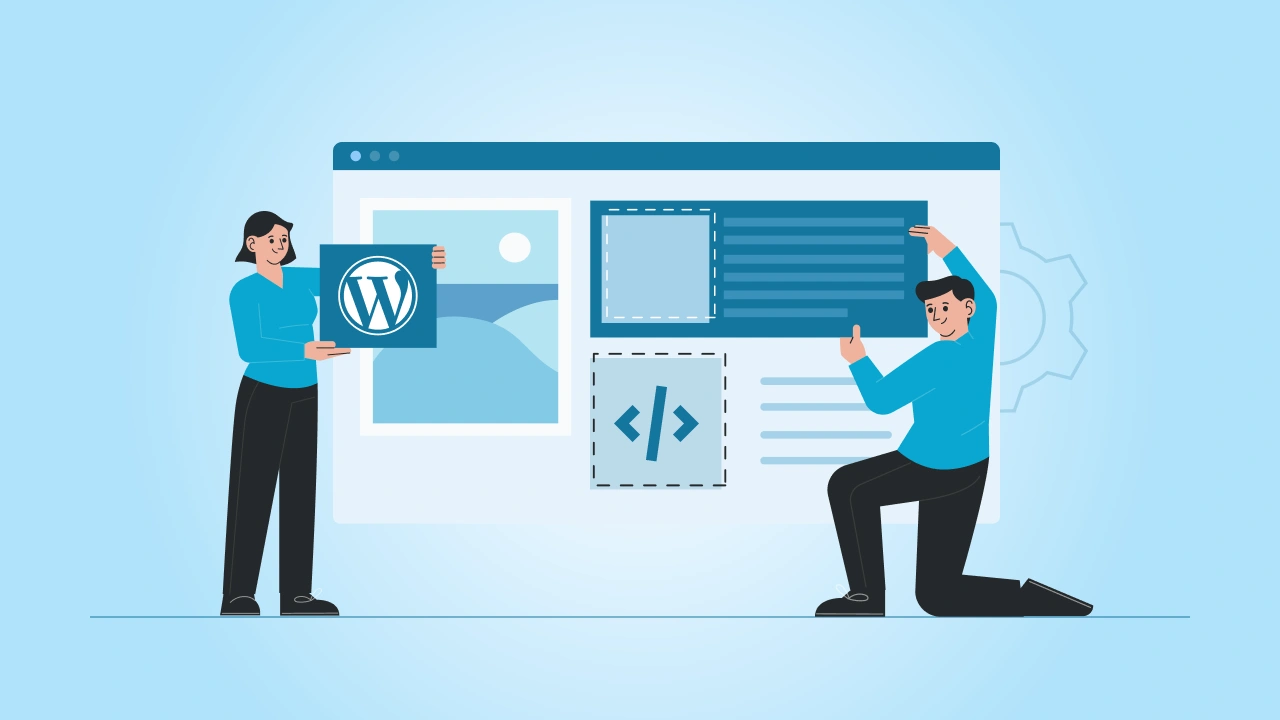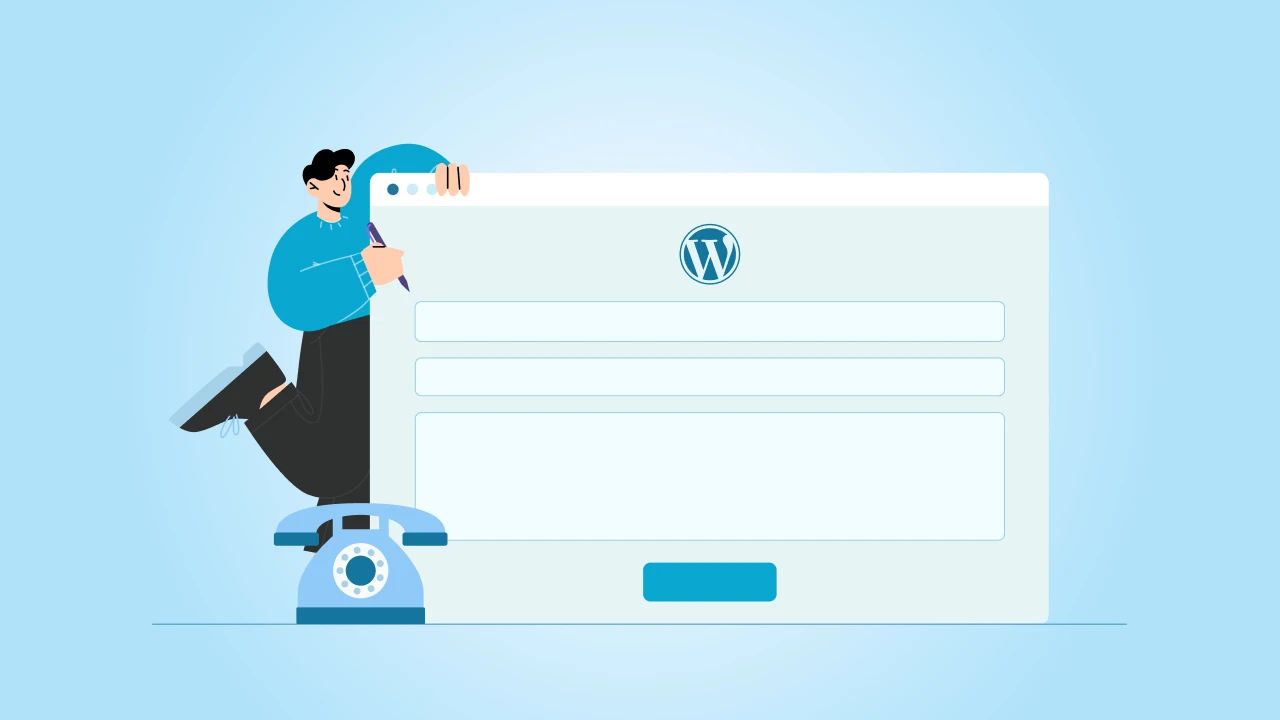Choosing the right Drupal development partner isn’t just about hiring a good or experienced Drupal developer—it’s about finding someone who understands your business goals. Your website is a key part of how your customers see you and it needs to grow with your business. The right partner will help you build something that lasts, keeps up with your needs, and drives your success.
Choose wrong, and you could end up with costly fixes or a platform that holds you back. So, this decision isn’t just technical—it’s strategic. You want a partner who’s as invested in your success as you are.
But how do you find a partner who truly aligns with your goals?
Let’s start by focusing on your business objectives first.
1. Start with Your Business Goals First, Not Just Technical Requirements
Before diving into technical details, it’s essential to focus on your broader business goals. Many businesses make the mistake of jumping straight into features and functionalities, but those should always come second to understanding why you are building the platform in the first place.
What do you want your website to achieve for your business? Maybe it’s about improving user engagement, streamlining e-commerce operations, or expanding into new markets. Whatever it is, having a clear understanding of your business goals will guide every decision you make during the development process. Your Drupal partner should be there to help align these goals with the technical solutions they provide, not just deliver a standard project.
Understand Your Core Business Objectives
Your business objectives are the foundation of your website’s success. If you don’t have a strong grasp on these objectives, your Drupal project can end up being nothing more than a collection of impressive features that don’t serve your real needs. That’s why it’s critical to map out your goals from the very beginning.
Your Drupal partner should ask questions like:
- What problem are you trying to solve with your website?
- Who are your target users, and how do you want them to engage with your site?
- What are your growth plans, and how should the website support that?
At cmsMinds, we go beyond the code. Get in touch with us to explore how our strategic approach can help you achieve your long-term business objectives.
Answering these questions will help you clearly define the purpose of your website. For instance, if your goal is to drive online sales, your Drupal partner should focus on e-commerce scalability and optimizing the user journey. If the goal is to build brand authority, they should prioritize content management features and SEO optimization. A strong partner will always make sure that the tech aligns with your business vision, not the other way around.
2. Assess Their Ability to Align With Your Vision
Choosing a partner who understands your industry isn’t just a bonus—it’s critical to the success of your project. An industry-aware partner can tailor your website to meet specific market needs, user behaviors, and regulatory requirements.
Evaluate Their Understanding of Your Industry
A Drupal partner who understands your industry can help you create a website that speaks the language of your customers. For instance, a partner with experience in e-commerce will understand the importance of smooth checkout processes, while one who has worked with healthcare organizations will be aware of the compliance and security requirements in that field. Having this industry-specific insight means they can anticipate challenges, make informed design decisions, and propose solutions that are tailored to your market’s needs.
Questions to Ask Potential Partners
To evaluate a Drupal development company or partner’s familiarity with your industry, ask them targeted questions that reveal how well they understand your business environment. Here are a few key questions to consider:
- Have you worked with clients in my industry or with businesses of similar size and complexity?
This question helps you understand their experience with challenges and needs specific to your sector. - Can you share case studies or examples of Drupal development projects you’ve completed in similar industries?
Reviewing real examples can give you insight into a company’s capabilities and past handling of industry-specific needs. - How do you stay updated with trends and changes in our industry?
A great partner keeps up with evolving industry trends, ensuring your website stays relevant and competitive. - What challenges do you foresee for a project like ours, and how would you approach solving them?
This question tests their ability to think critically and shows if they’ve encountered similar problems in your field. - How do you tailor your approach based on different industries or target markets?
This reveals whether they have a one-size-fits-all approach or if they customize their solutions based on the specific needs of each client.
By asking the right questions, you’ll gain insight into whether a potential Drupal partner has the experience and foresight to not only meet the technical demands of the project but to align with the goals and trends of your industry.
3. Review Their Experience Beyond Technical Competence
When evaluating a Drupal partner, it’s crucial to look beyond their technical skills and dig into their past projects. Specifically, you want to see case studies that show their ability to deliver real, measurable business outcomes—not just technical achievements.
Look for Case Studies That Match Your Objectives
Did they help a client grow conversions? Improve user engagement? Reduce bounce rates? A strong Drupal partner will be able to share examples where they aligned their technical solutions with broader business objectives, showing how their work directly contributed to the client’s success.
For example, if your goal is to increase sales through your e-commerce platform, look for case studies that highlight how the partner helped another client achieve a similar goal. The key is to focus on the end results rather than just the technology stack used. A partner’s ability to talk about business growth, improved user experience, or other tangible results will tell you much more about their competence than a list of technologies they’ve mastered.
Custom Development vs. Out-of-the-Box Solutions
Another important factor to consider is whether your Drupal partner knows when to recommend custom development versus out-of-the-box solutions. Not every project requires a fully custom-built solution, and an experienced partner will guide you on when it’s better to use existing modules or features that come with Drupal. This not only saves time and costs but also ensures that your website is scalable and easier to maintain.
However, there are times when a custom approach is the best fit for achieving your specific business goals. For example, if you need unique functionality that can’t be supported by off-the-shelf modules, custom development may be necessary. A great Drupal partner will know how to balance these two approaches, recommending a strategy that best aligns with your goals—whether that’s speed to market, budget, or long-term flexibility.
4. Communication and Cultural Fit Are Key to Long-Term Success
One of the most overlooked aspects of choosing a Drupal partner is their communication style and cultural fit. No matter how skilled a development team is, if they don’t communicate effectively or mesh well with your company culture, the project can become frustrating and unproductive.
Collaborative Culture and Transparent Communication
You want a partner who’s not just technically proficient but also proactive in keeping you informed, collaborative in brainstorming solutions, and open to feedback throughout the entire process.
Look for signs of this during early interactions. Are they responsive to your questions? Do they offer insights without being asked? How do they handle feedback?
A Drupal partner with a transparent communication style will keep you updated on progress, flag any potential issues early, and work with you to find solutions—especially in long-term or complex projects.
Agile or Waterfall? Match the Project Management Approach to Your Goals
The way your Drupal partner manages projects is just as important as their technical skills. Two common methodologies they might use are Agile and Waterfall, and choosing the right one depends on your project goals and working style.
- Agile: Ideal for projects that are complex, evolve over time, or require frequent updates. Agile teams work in short, iterative cycles, allowing for more flexibility, regular feedback, and continuous improvements. If you want to be hands-on and make adjustments along the way, Agile may be the best fit.
- Waterfall: More suitable for projects where the scope is clearly defined upfront, and there’s less need for ongoing changes. Waterfall follows a linear approach, where each phase (planning, design, development, testing) is completed before moving to the next. If you have a strict timeline and well-defined requirements, Waterfall might be a better choice.
To ensure smooth collaboration, ask potential partners about their preferred project management methodology and how it aligns with your team’s workflow. For example, if your team values frequent check-ins and adjustments, an Agile approach will likely work best. On the other hand, if you prefer a clear, structured timeline with minimal changes, Waterfall might be more suitable.
Ultimately, the right partner will adapt their management style to suit your needs, ensuring the process complements your workflow and sets the project up for success.
5. Evaluate Their Long-Term Support and Maintenance Offerings
Launching your Drupal website is just the beginning. To ensure your digital platform continues to meet evolving business goals, ongoing support and maintenance are crucial. A strong Drupal partner will offer post-launch services that go beyond basic troubleshooting, providing regular security updates, performance optimizations, and guidance on evolving your content strategy.
Post-Launch Support for Continuous Improvement
As your business grows, your website needs to adapt—whether that means scaling to handle more traffic, adding new features, or keeping up with the latest digital trends. Continuous improvements help your site stay secure, relevant, and high-performing. A reliable partner will monitor your site’s performance, fix issues before they escalate, and suggest optimizations to keep you ahead of the competition.
Ability to Scale with Your Business
Your Drupal partner should not only support you after launch but also have the capacity to grow with your business. As your company expands, your website might need to handle more visitors, integrate with new tools, or introduce entirely new functionalities. A forward-thinking Drupal partner will have a long-term roadmap in place, offering ongoing consultation to ensure your digital platform scales efficiently.
This means choosing a partner who understands your future growth plans and is capable of adjusting their services to your evolving needs. Whether it’s scaling infrastructure to support more users or rolling out new features in line with business expansions, your partner should be able to handle the increasing complexity without compromising performance. By having a flexible, scalable support system in place, you’ll be prepared for whatever comes next, ensuring your website grows alongside your business.
6. Check for Strategic and Creative Thinking
A great Drupal partner isn’t just a team that builds your website—they should also offer strategic services that go beyond coding. Look for a partner who can contribute to areas like content strategy, UX/UI design, or marketing consultation. These services ensure your site isn’t just functional but also tailored to deliver the best possible experience for your users while aligning with your business goals.
Value-Added Services Beyond Development
A partner who offers more than just development will help you think holistically about your digital presence. For example, they may advise on how to structure content to improve SEO, suggest design elements that enhance user engagement, or recommend marketing strategies that drive traffic and conversions. This kind of strategic thinking helps your website do more than look good—it actively supports your business objectives.
Ask for Their Input on Future Trends
The digital landscape is constantly evolving, and your Drupal partner should be keeping up with the latest trends and innovations. Whether it’s headless CMS architectures, AI-driven user experiences, or new web development best practices, a forward-thinking partner will be able to guide you on emerging trends that could benefit your project.
When evaluating potential partners, ask them what trends they’re excited about or how they foresee the future of web development evolving. Their answers will give you insight into their ability to innovate and think creatively. You want a partner who doesn’t just execute on your current needs but also helps you stay ahead of the curve with ideas that can keep your website future-proof and aligned with new opportunities in the digital space.
7. Get References and Ask the Right Questions
Before making a final informed decision, it’s essential to reach out to a potential Drupal partner’s previous clients to get a sense of how they perform in real-world situations. Talking to references gives you a chance to understand not just the technical capabilities of the partner but also how they align with business goals, adapt to changes, and collaborate over the long term.
Interview References to Gauge Real-World Alignment
When interviewing references, avoid generic questions. Instead, focus on understanding how the Drupal partner helped their previous clients achieve specific business outcomes. For example, ask how the partner supported their growth, improved conversion rates, or helped scale their platform as the business evolved.
Questions to Ask References
Here are a few specific questions to guide your conversation:
- How well did the partner understand and align with your business goals?
This helps gauge whether the partner was strategic in their approach, rather than just delivering technical solutions. - Did the partner demonstrate flexibility and adaptability as your project evolved?
Understanding their ability to adjust to changing requirements or business needs will show how well they handle the dynamic nature of long-term projects. - How proactive was the partner in communicating and suggesting improvements?
Good partners don’t just wait for instructions—they actively suggest ways to improve performance or enhance the user experience. - Did the project meet its objectives, and what measurable outcomes were achieved?
Focus on real results like increased traffic, improved user engagement, or enhanced functionality that contributed to business success. - How was their collaboration style? Were they easy to work with over the long term?
Long-term success depends on how well you can collaborate. This question will help you assess if they were responsive, open to feedback, and invested in the partnership.
Making the Decision: Trust, Transparency, and Strategic Fit
Choosing the right Drupal partner goes far beyond technical expertise. It’s about finding a partner who understands your strategic goals and can collaborate with you to achieve them. Whether your focus is on scaling your business, enhancing user experience, or improving conversions, aligning with a partner who shares your vision is key to long-term success.
When making your decision, prioritize trust, transparency, and strategic fit. A great partner will communicate openly, adapt to your evolving needs, and stay committed to helping your business grow over time. By focusing on more than just technical skills, you’ll ensure you have a partner who’s invested in your success and capable of building a platform that supports your goals both now and in the future.
Don’t settle for less. Partner with cmsMinds for expert development, transparent communication, and a team that’s dedicated to your growth.




